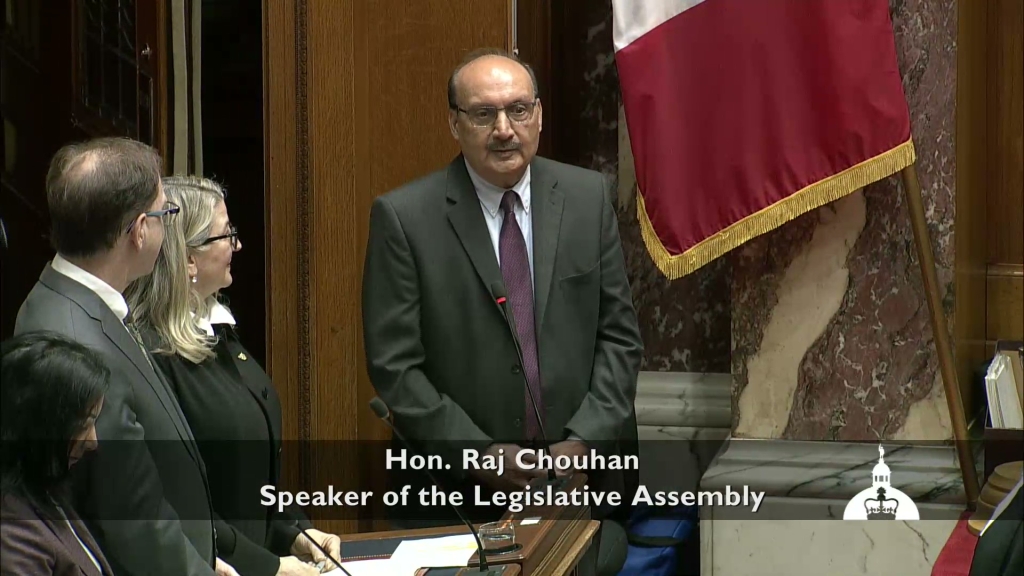The Speaker, when elected, does not stop being an MLA. That means that while remaining neutral and avoiding taking public positions on politically controversial matters before the Assembly, the Speaker must still continue to listen to the people of their constituency to effectively represent their interests. The Speaker does this by having direct access to Cabinet ministers so that they may make private recommendations to government on issues affecting their constituents. The Speaker, however, does not attend caucus meetings, even if they belong to a party.
On October 27, 1972, the Legislative Assembly passed the Legislative Procedure and Practice Inquiry Act, 1972. This legislation gave the Speaker the powers to review the procedures and practices of the Legislative Assembly. Now called the Legislative Procedure Review Act, 1996, the Speaker is able to study the business of the Legislative Assembly and make recommendations for changes, which can range from what time the Assembly should sit to how MLAs should behave in the Assembly. Once these recommendations are submitted to the Legislative Assembly, it is up to Members to vote on whether to adopt them. This process allows for the procedures and practices of the Assembly to be updated whenever necessary.

